We are 100% volunteer based. Want to help your community? Meet more neighbors? There are all kinds of opportunities large and small, behind the scenes or out in front.

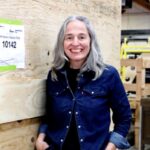
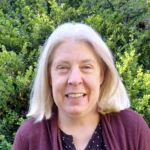
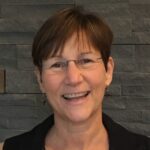

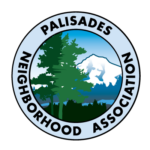


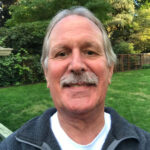

Primary Role:
If you’d like to get involved with our Emergency Preparedness Committee, please contact us here.
E-Newsletter Coordinator Responsibilities:
The role of the Land Use Coordinator is to be the contact person for the city Planning Department for all land use applications including Pre-Application conferences and Residential Infill Development (RID) variance applications.
The Coordinator assembles a team of volunteer Pre-Application conference representatives who will become trained to attend the Pre-App conferences as neutral representatives of the Palisades Neighborhood Association.
The Coordinator will either attend the Pre-App conference, or arrange for a member of the team to attend. For some projects, the Coordinator may arrange for up to 2 people from the team to attend.
If appropriate, the Coordinator notifies the PNA Chair, Vice Chair, and Area Representative regarding the proposed project and discusses whether or not to escalate it to the full PNA board.
The conference representative(s) will follow up the conference with a brief report to the Coordinator and Area Representative with any observations and concerns.
Volunteers can be “certified” to attend Pre-Application conferences by participating in a one hour +/- training session (soon to be available on-line) provided by the Planning Department. To get scheduled for training, contact Kat Kluge kkluge@ci.oswego.or.us, or the Land Use Coordinator.
Here is an overview from the Planning Department regarding Pre-Application conferences and the role of representatives from a neighborhood association:
What is a Pre-Application conference?
The pre-application conference provides an opportunity for an individual seeking a development permit to learn about the zoning, development ordinances and procedures required to complete a land use/development application. These conferences are required of all minor and major development proposals. The conference occurs, at a cost to the applicant, prior to submission of a formal development application. Neighborhood participation in these meetings will help inform the applicant of potential issues they may encounter working in your neighborhood. Because your association is better positioned to share that information than anyone else, your participation is particularly important.
Who from the neighborhood associations can attend pre-application conferences?
Each neighborhood association delegates up to two members to attend pre-application meetings for sites located in that neighborhood association’s boundaries and then report back to the larger group. Before they can attend, your representatives must complete a pre-application training session by the City, usually offered in the spring and fall each year [soon to be available on line]. The training will help them understand the purpose of a pre-application conference and their role in the process. There is no limitation on how many members of your association complete the pre-app training session, but attendance at an actual pre-application conference is limited to two association representatives.
Your association can choose how many delegates to send to the City training, but there are a few things you should keep in mind when selecting representatives:
The Parks and Rec coordinator acts as a liaison with City’s Parks and Rec staff. Responsibilities include everything related to acquiring information about Parks and Rec future plans and projects with enough details to determine whether the goals of the P&R team align with those of our neighborhood. The coordinator will join meetings, surveys and studies by P&R aimed at understanding the citizens viewpoint.
Activities of this committee may include:
Estimated time commitment: 2 hours to 8 hours per month.
We are always actively looking for individuals who want to join the Palisades Neighborhood Association, and our events committee is always in need of a helping hand. We are looking for passionate individuals who enjoy being social, planning neighborhood events, has wonderful personable skills and is eager to better their community through social gatherings. Our events committee is new (since 2023), so we are looking for individuals who can help build this committee.
Duties:
The Neighborhood Association Sustainability Board position is a critical role that involves promoting sustainable practices and environmentally friendly initiatives within a neighborhood association. As a member of the board, you will work with other community members to develop and implement strategies that reduce the environmental impact of the neighborhood, enhance its resilience to environmental challenges, and promote a healthy and sustainable living environment for all residents.
Key responsibilities of the Neighborhood Association Sustainability Board position may include:
1. Developing and implementing sustainability plans: The sustainability board will be responsible for developing a comprehensive sustainability plan that outlines the goals, objectives, and strategies for achieving sustainable practices within the neighborhood association.
2. Promoting energy conservation and efficiency: The board will work with residents and local businesses to promote energy conservation and efficiency practices, such as reducing energy consumption, using renewable energy sources, and improving energy efficiency in homes and buildings.
3. Waste reduction and recycling: The board will develop and implement strategies for reducing waste and increasing recycling within the neighborhood, such as promoting composting, organizing community recycling events, and encouraging residents to reduce their use of single-use plastics.
4. Water conservation: The board will work to promote water conservation practices, such as promoting the use of rainwater harvesting systems, encouraging residents to use water-efficient appliances and fixtures, and promoting xeriscaping and other water-efficient landscaping practices.
5. Community education and outreach: The sustainability board will be responsible for educating and engaging the community about sustainability practices and initiatives. This may include organizing workshops, events, and other educational programs to promote sustainability awareness and encourage participation in sustainable practices.
To be successful in this position, you should have a strong interest in sustainability and a desire to make a positive impact in your community. You should also possess excellent communication and interpersonal skills, as you will need to work closely with residents, businesses, and community organizations to promote sustainability initiatives and build community support. Experience in sustainability-related fields, such as energy management, waste reduction, or environmental policy, may also be beneficial.
Optionally, the Sustainability Coordinator can create educational content monthly or quarterly. Content can be added to the website or shared however the board recommends. See ‘Sustainability’ section on this website for examples.
The Traffic Committee Coordinator serves as the liaison between the Palisades Neighborhood Association (PNA) and the Lake Oswego Police Department (LOPD), the City of Lake Oswego Traffic Engineer, the Lake Oswego School District (LOSD) and Oregon Dept. of Transportation (ODOT). The purpose of this committee is communicate issues and propose solutions to the PNA Board and the related public agencies above.
Duties:
Primary Role:
Process:
What Happens Next:
Webmaster Responsibilities: